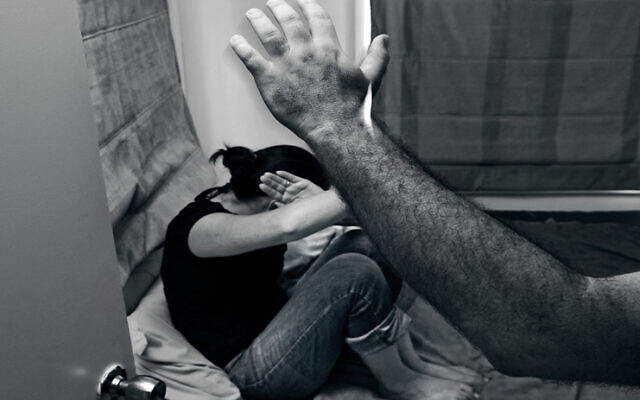Stamping out the scourge of domestic violence
Rabbi Glasman: 'Violence against women cuts through every cultural, religious and socioeconomic sector of society'.
This year in Australia it won’t be the same. For the past four decades the 25th of November marked White Ribbon Day, a moment in time when we focus our collective minds on the scourge of violence against women. But for the first time in nearly 40 years, White Ribbon Day will be without its parent body.
On Thursday, October 3, 2019, White Ribbon Australia, the well-known movement that set out to eliminate violence against women, announced its shock decision to close up shop. “It is with profound sadness that the board of White Ribbon Australia informs the community and supporters that it has taken the very difficult decision to close its doors,” its official statement read.
I have no desire to speculate on why this important organisation hung up its saddle. Indeed, to do so without firsthand knowledge would be wrong. But one thing I do know is that although the cornerstone body taking the fight to domestic violence is no longer around, domestic violence itself very much is. It is, in fact, at epidemic levels.
I don’t use this term lightly. When women are murdered on a regular basis in their homes, in parks or at bus stops, it warrants the term ‘epidemic’. These are not isolated incidents. These murders occur 1.5 times every single week. They have been occurring for years and years. Australia becomes more and more ‘progressive’ as the decades pass yet the inhumane murders continue unabated, deepening this ugly stain on our so called ‘modern’ society.
As a White Ribbon Ambassador, I am the first person to admit that token White Ribbon breakfasts and the display of white ribbons on our lapels do little to stop the violence. The importance of these symbolisms lie in the sense of solidarity and support they offer to victims of domestic violence. It tells them that there are people out there who care and who want it to stop. However, for the violence to actually stop, a lot more needs to be done.
In her core-shaking book See What You Made Me Do: Power, Control and Domestic Abuse, Walkley Award-winning author Jess Hill analyses the social and psychological causes of violence against women, its horrific impact, and – most hauntingly – the failure of our legal and social institutions to adequately respond.
She argues that instead of focusing on questions like “Why didn’t she leave?” we need to focus more on justice programs pointing squarely at the perpetrators and holding them to full account.
Commenting on this book, columnist Jane Gilmore notes that although grassroots efforts to push back against the violence are important, the cultural change can and must start at the top because that is where the power lies. “The political will to make change just isn’t there at a national level,” Gilmore argues, “minimal funding, vague press releases about awareness raising and turning up to a parliamentary breakfast on White Ribbon Day is not going to save lives.”
She is right. The federal government invests massive amounts of money on national security to ward off threats from without, but nowhere near enough money to ward off the threats from within. And these murders are very much perpetrated from within – most of the killers are men with whom the victim has or had an intimate relationship.
At a state level, successive governments have failed to provide adequate resources to the prison system. In order to create appropriate deterrence to would-be murderers, convicted murderers should be locked up for life or close to it. But more importantly, significantly more resources are required to prevent violent tendencies from the outset by implementing more impactful educational programs within the primary and secondary school systems. Children, especially as they begin their formative years (or even earlier with age-appropriate content), need to be taught what respectful relationships look like.
Violence against women cuts through every cultural, religious and socioeconomic sector of society (including the Jewish community despite it being strictly prohibited in Jewish law) and must be responded to as a matter of urgency. Sadly, White Ribbon Australia did not close its doors because it achieved its goal of eliminating violence against women. Let us work towards creating a country in which the remaining such organisations do.
Rabbi Yaakov Glasman is the senior rabbi of St Kilda Hebrew Congregation.


comments